Entrepreneur E.B. Flake started a Salem Advertising Empire, Flower Shop and Pet Shop
Discussion of the faults of Social Media platforms has loomed large in the media of late. The digital frontier has made it so much easier than it used to be to get any type of word out to thousands of people instantly and irrespective of geography. Basking in the glow of my screen, I found the story of Ernest Benjamin Flake’s business model a century ago a particularly stark contrast to these discussions. Digging into Flake’s history, a biography emerged of a very unique, persevering and passionate man.
Bill Distributor
I learned about Flake’s business thanks to a vacation he took in July 1921 to Clatskanie for some boating. In the true glorious detail of early 20th century journalism, there was an entire article devoted to this event headlined: “E. B. Flake to Have Vacation.” Apparently, Mr. Flake didn’t take too many vacations. He was a busy man, being one of the only “bill distributors” in the city.[1] Before that ubiquitous word “bill” gets you thinking about collections agencies or accounting firms, let me stop you. The bill referred to here was a hand bill, or small printed advertisement. Flake took orders from local businesses and then distributed hand bills, catalogs, circulars, magazines, even phone books for a time, door to door to residents of the city of Salem. In a 1914 advertisement for his services, he described himself as a: “Licensed city distributor of samples, handbills, campaign matter, etc. House to house distributing a specialty. Honest and careful work guaranteed.”[2]
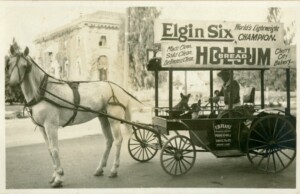
Ernest Benjamin Flake in custom made wagon created by Salem-based Fennell’s Wagon Shop. WHC Collections 83.43.1.103.16
By the time he took his vacation, Flake had been in business for nearly a decade and estimated he had travelled over 92,000 miles, all within the city limits of Salem.[3] He started out with a horse and wagon and eventually worked his way up to an automobile, which carried materials to a specific neighborhood for distribution and then hired a crew of 4-10 young boys to run them from the wagon to the door, ensuring supervised delivery. His model was apparently a more reliable option than the businesses just hiring the boys themselves.[4]
One of the benefits of the job was that he got to know the town and the people really well. One newspaper reported: “He knows every street and every house on every street in Salem. Name any block and he can tell you how many houses there are therein, and what color they are. He knows all of the dogs and most of the children. He knows so many people in town that when he speaks from the middle of the street to one, as many as six have responded.”[5]
Love of Animals leads to Pet Shop
His acute knowledge of dogs may have stemmed from his other passion – pets. In addition to his distributing business, Flake had a passion for animals. A passion that would transform his sales of parakeets and puppies out of his home to a full-blown pet store and boarding business. Flake and his new bride Edna opened their pet and flower shop at 273 State Street, just west of today’s Pioneer Trust Bank building,[6] in December 1921.[7] Perhaps a nod to his advertising roots, he described the business as “new, modern songbird parlors.”[8] Flake’s Petland Store carried St. Andreasberg rollers (“the canary with a college education!”); Fox Terrier and Airedale puppies; Spratt’s dog, cat and bird food and remedies; and cages and other supplies.[9]
As the pet business grew, the couple purchased 5 acres north of Salem on the Pacific Highway (now Portland Road – north of Highway Ave NE and South of Rose Garden St NE) and opened up Flake’s Petland Farm – envisioned as a park to be visited and a place to raise the animals they sold.[10] One advertisement in American Fox and Fur Farmer described Flakes vision as open to the public at all times with kennels (“each pen will have an inside bedroom and all pens will be open into a large exercise run”), aviaries for birds and fancy pheasants, pigeon lofts, houses for fancy bantams and poultry and eventually a “silver fox department.”[11]
Business was good. Flake estimated he sold “90 percent of the birdseed in Salem.”[12] It was a dream for him, and something he probably couldn’t have imagined when he first started caring for animals as a young boy. Flake’s love of animals started out as a solace during the darkest time of his life. He had gone to work at age 14 in a sawmill to help with family expenses. After about a year on the job, one day he started getting a pain in his knee. It got progressively worse, and while doctors speculated about blood poisoning, Flake spent an entire year bedridden, barely able to hold his head up and without answers. The next ten years he spent housebound, unable to walk and with so much memory loss he had to learn how to read all over again. The one thing he could do was take care of a canary a neighbor had gifted him.[13] From then on, he was hooked. As he recalled later on that “he endeavored to raise birds and pets a little better than could be raised by other people. Each bird or pet sold meant an additional friend.”[14]
Eventually, Flake was able to find independence with the use of wheelchair, and after much arguing with blacksmiths who thought his designs impracticable, a specially designed wagon.[15] From there his entrepreneurial endeavors blossomed.
Despite his successes, his medical problems worsened. After a protracted illness and amputation, he died in 1932 at age 43, leaving behind his wife Edna, his three children, his business and a legacy of love of animals and the community.[16]
This article was written by Kylie Pine and appeared in the Statesman Journal August 1, 2021. It is reproduced here with citations for reference purposes.
Sources:
[1] “E. B. Flake to have vacation” Oregon STatesman 31 July 1921 pg 4
This article makes the statement that: “He has been distributing advertising matter of various kinds in Salem for about 10 years, most of that time being the only one here doing that kind of work.” However, we came across an advertisement for at least one other business doing similar work. See advertisement for Penton Distributing Co., Capital Journal. 19 Dec 1914 pg 14
[2] “E.B. Flake.” Oregon Statesman. 14 Apr 1914 pg 7
[3] E.B. Flake to have vacation.
[4] Seeley, Etta Squier. “Strange Wagon Obtain Results.” Oregon Daily Journal. 04 Apr 1920 pg 6.
[5] “E.B. Flake.” Oregon Statesman. 14 Apr 1914 pg 7
[6] “Canary Birds.” Oregon Statesman 09 Jun 1922, pg 7; Advertisement. Capital Journal 27 Oct 1922
[7] American Fox and Fur Farmer. May 1924 pg 11
[8] Advertisement. Oregon Daily Journal 11 Nov 1922.
[9] Advertisement. Capital Journal 27 Oct 1922; “Canary Birds.” Oregon Statesman 09 Jun 1922;
[10] American Fox and Fur Farmer. May 1924 pg 11
[11] American Fox and Fur Farmer. May 1924 pg 11
[12] American Fox and Fur Farmer. May 1924 pg 11
[13] Rhoten, E.A. “Handicaps and disasters early days only whet amibition; business gorws.” Oregon statesman. 05 aug 1928 pg 15
[14] American Fox and Fur Farmer. May 1924 pg 11
[15] Seeley, Etta Squier. “Strange Wagon Obtain Results.” Oregon Daily Journal. 04 Apr 1920 pg 6.
[16] “Flake dies after Limb Amputation.” Oregon Statesman 09 Sep 1932 pg 11.



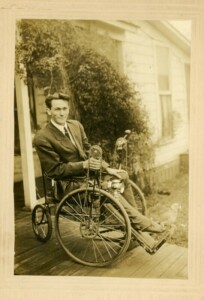
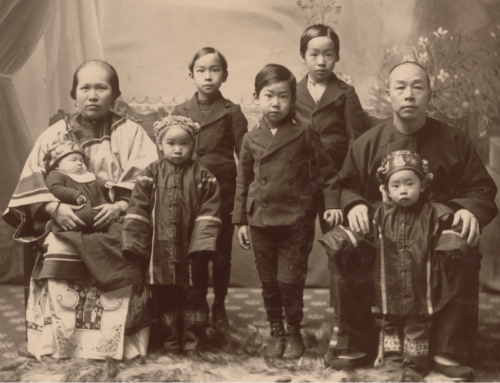
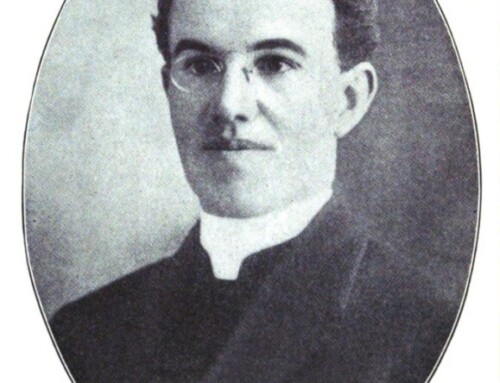
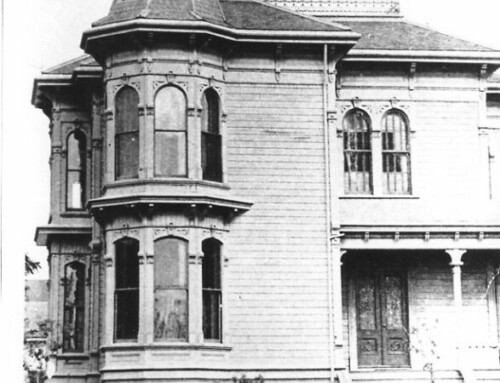
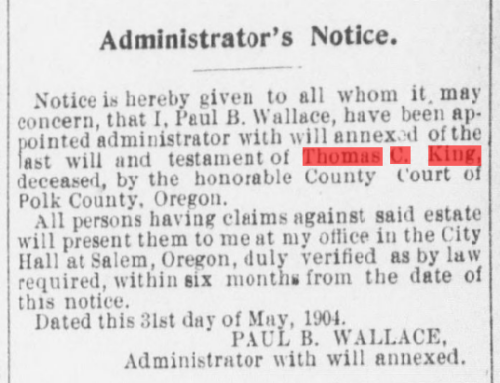
Leave A Comment